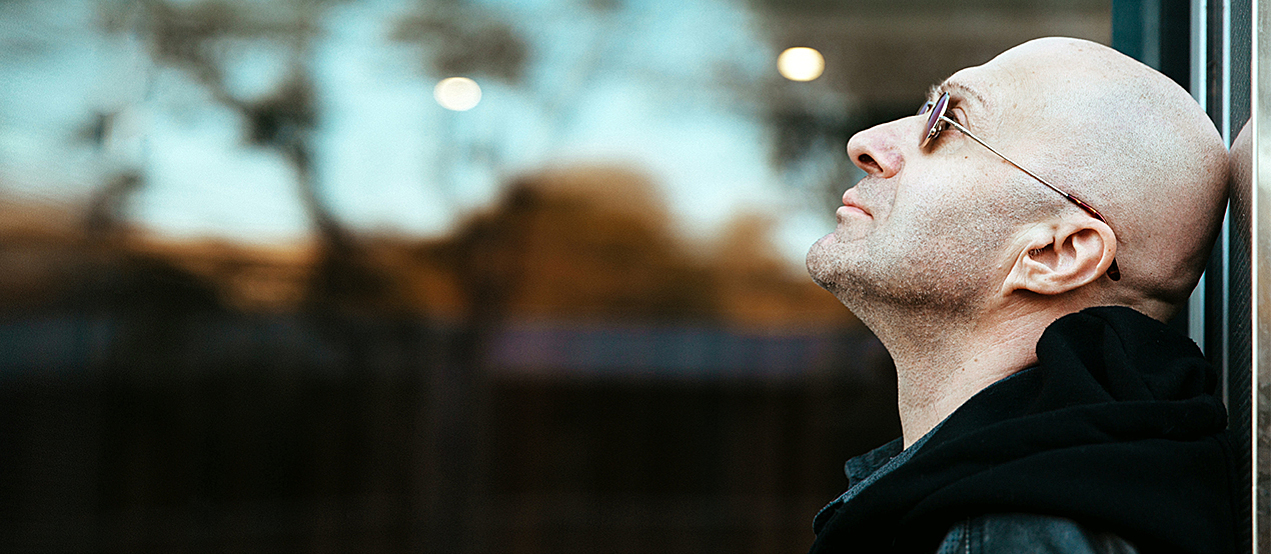Üritus
Anton Batagov (composer and pianist)
"His performance transcends the material world."(Crescendo magazine, Germany)
"Anton Batagov is a mystic of the piano. Part shaman and part showman, beneath his fingers the keys of the keyboard reveal another world, another layer of spiritual energy, and another way of" listening. (Time out New York magazine)
"Batagov shakes up our notion of what a solo piano recital can sound like." (The Gathering Note, Seattle)
Anton Batagov is one of the most influential and iconic figures in the world of new classics. His albums, concerts and premieres of compositions each time become significant events. He plays on the world's most prestigious stages.
Anton Batagov is one of the closest collaborators of Philip Glass, one of the key performers of his music. He has been touring internationally with Glass for almost a decade. His Glass albums – The complete Etudes, Prophecies (Batagov's piano arrangements of scenes from Einstein on the Beach and Koyaanisqatsi), music from The Hours and Distant figure (a composition written by Philip Glass for and premiered by Anton Batagov) – have received critical recognition, thousands of sales and millions of streams.
His debut CD, a 160-minute recording of Messiaen's Vingt regards sur l'Enfant Jesus (1990), became a major sensation. Three years later a renowned American critic Richard Kostelanetz characterized his 1993 recording of Bach’s The Art of the Fugue as "the most stunning interpretation of Bach since Glenn Gould."
As a composer, Batagov has his own unique voice. The post-minimalist language of his compositions is rooted in the harmonic and rhythmic patterns of Russian church bells mixed with the spirit of Buddhist philosophy, the dynamic pulse of early Soviet avant-garde, and the unfading energy of progressive rock. His discography includes over 50 albums. Batagov is also the author of several movie soundtracks and original music for numerous television channels.
From 1997 to 2009, Batagov stopped his concert activity, focusing on recording work.
Since 2009 he has been performing a series of unique solo piano programs. His repertoire includes contemporary classics and great composers of the past. Along with the music of John Cage, Morton Feldman, Philip Glass and Michael Nyman, Batagov performs Bach, Pachelbel, early English music, Mozart, Schubert, Debussy, and many others composers, as well as his own numerous piano compositions.
He has performed at the Brooklyn Academy of Music (New York) and the Grand Hall of the Moscow Conservatory, Jordan Hall (Boston) and the Moscow International House of Music, Bing Concert Hall (Palo Alto, California) and the Grand Hall of the St. Petersburg Philharmonic, Elbphilharmonie (Hamburg), The Berliner Philharmonie, Philharmonie de Paris, The Grand Hall of Moscow Conservatory, Teatro Regio (Parma, Italy), Palau de la Música Catalana (Barcelona) and many others venues.
The musician left Russia in March 2022!
"The music in his performance consists of notes that are written by the composer, played in the same order, but it seems that the music is disassembled into separate sounds; they are rethought, reflected in each other and assembled into a new whole."(Forbes, USA)
Selected Letters of Sergei Rachmaninoff
In October 2012 I visited Rachmaninoff’s grave. He is buried at Kensico Cemetery in the hamlet of Valhalla, half an hour’s ride from New York City. The cemetery is surrounded by picturesque mountains, well-tended houses, manicured lawns, and idyllic lakes and streams. Rachmaninoff is buried among actors, writers, politicians, military personnel, and business people, together with «ordinary mortals» from all over the world – Americans, Russians, Estonians, Chinese people... A great musician who heard the universe as a powerful, boundless space resounding with the sounds of bells at once both tragic and triumphant, Rachmaninoff left Russia and became a part of a completely different world... As I stood at his grave, I found this space resonating within me. When I returned home, I began writing a piano cycle. In this cycle, Rachmaninoff writes letters to postmodern composers. Rachmaninoff himself was an anti-modernist. He was not a revolutionary, was never «ahead of his time,» and was unafraid of looking old-fashioned. At first glance, it would seem that he bore no influence on late 20th/early 21st century composers. Nonetheless, his invisible, magical presence can in fact be heard in the music of some composers, including so-called «contemporary classical» composers and rock musicians. Likewise, when I hear Rachmaninoff’s endless melodies that evolve from a very short motive of literally two or three notes, the word «minimalism» all but rolls off my tongue. However, these connections are so subtle and not readily apparent that I wouldn’t want to deaden them by invoking musicological terms. Rachmaninoff thus speaks to the composers that would come after him. Among composers of his time, he did not find a receptive audience – unsurprising, perhaps, given the avant-garde experiments consuming the musical world at the time. The generation that followed Rachmaninoff essentially continued along the avant-garde path. However, Rachmaninoff looked even further ahead, taking sight of those with whom he desired to speak heart-to-heart. We have long been accustomed to the fact that both early music and classical music are used as the building materials for new compositions. Time runs quickly, and we are already at the next turn of the spiral. Music written only a short while ago becomes itself material for today’s meditation. In this process, there are no quotations; there are only stylistic journeys in a time machine. The turns of this spiral resonate with one another, and we listen to the sounds they make.
Korraldaja: Trade Hub Productions, Ltd.

